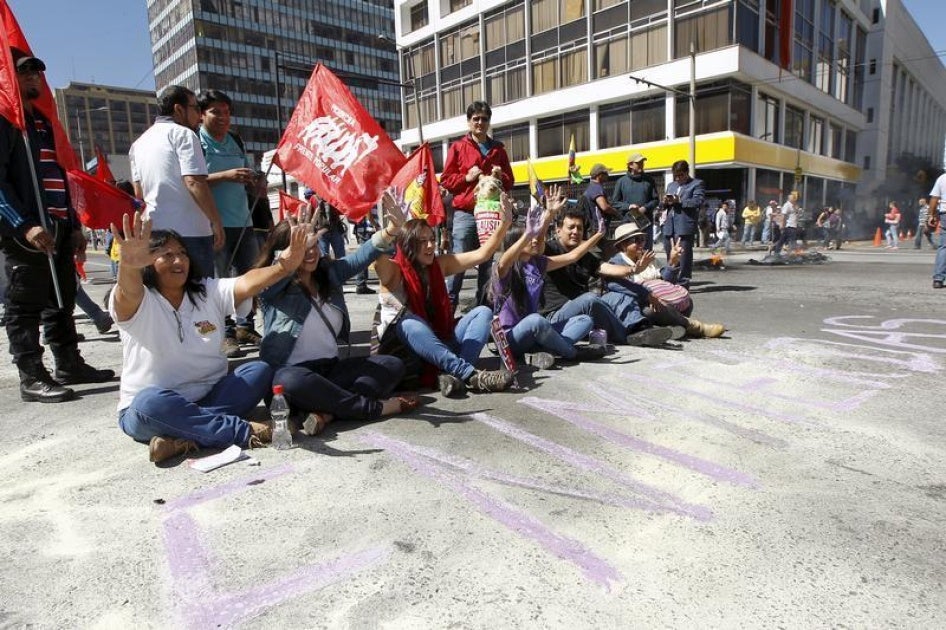Earlier this month, hundreds of Ecuadorians took to the streets to protest the National Assembly’s approval of constitutional amendments that open the door to troubling restrictions on free speech and allow for indefinite presidential reelection after 2017.
On December 4, 2015, the day after the protests, 21 people were convicted and sentenced to 15 days in prison for “issuing expressions of discredit and dishonor against policemen” in connection with the protests. Several detainees told the court that police physically and verbally abused them; some said they were not participating in the protests at all when they were detained. Some detainees were reportedly held for several hours without the possibility of calling family members or a lawyer.
In his sentencing, the presiding judge cited testimony of witnesses who described violence during the protests and protesters insulting the police. But the judge didn’t specify what constitutes “expressions of discredit and dishonor” or anything the 21 people did to discredit policemen, nor cite any evidence directly linking them to the incidents. Last week, an appeals court rejected a habeas corpus petition filed by defense attorneys to release the detainees.
Even if the 21 people had actually discredited or dishonored the police – which is impossible to determine from the trial evidence – the sanction of imprisonment is wholly inappropriate. Under international human rights standards, public officials are exposed to greater public scrutiny and risks of being criticized, so while they should be legally protected against undue attack, this should also be balanced to ensure there is no violation of the right to freedom of expression.
In a country where judicial independence is severely undermined, impunity for abuses is common, and President Rafael Correa has personally used criminal defamation to prosecute critics, it is not surprising that the courts would ignore Ecuador’s obligations to respect free speech and regional standards that require that the reputation of public officials be guaranteed by civil – not criminal – sanctions.
The Correa administration has repeatedly acted as if it has a blank check to limit free speech, and as long as they are not called out on it internationally, the risk is they will continue to do so.









